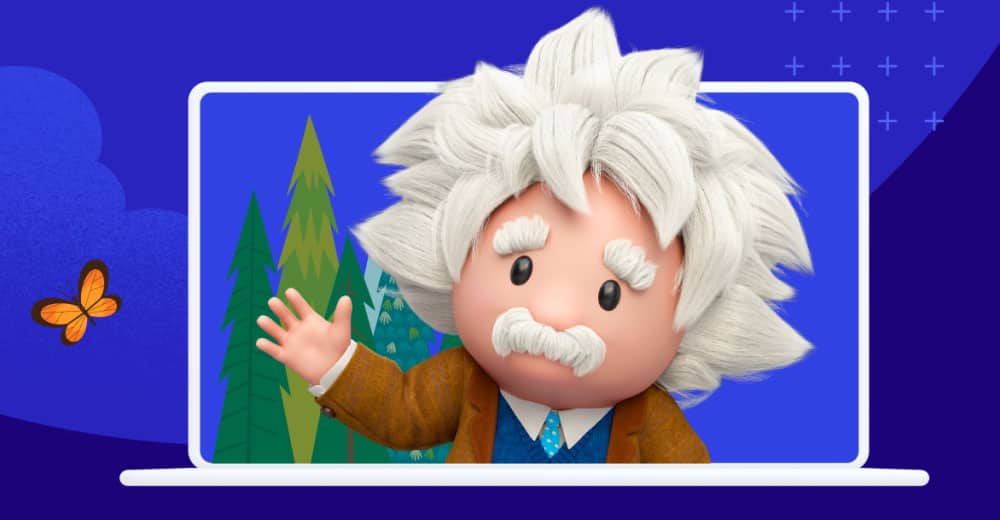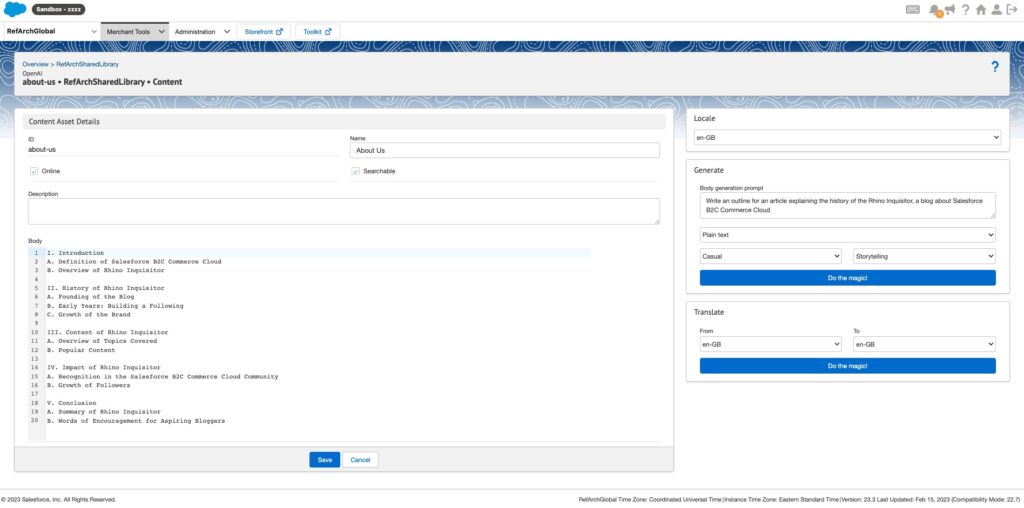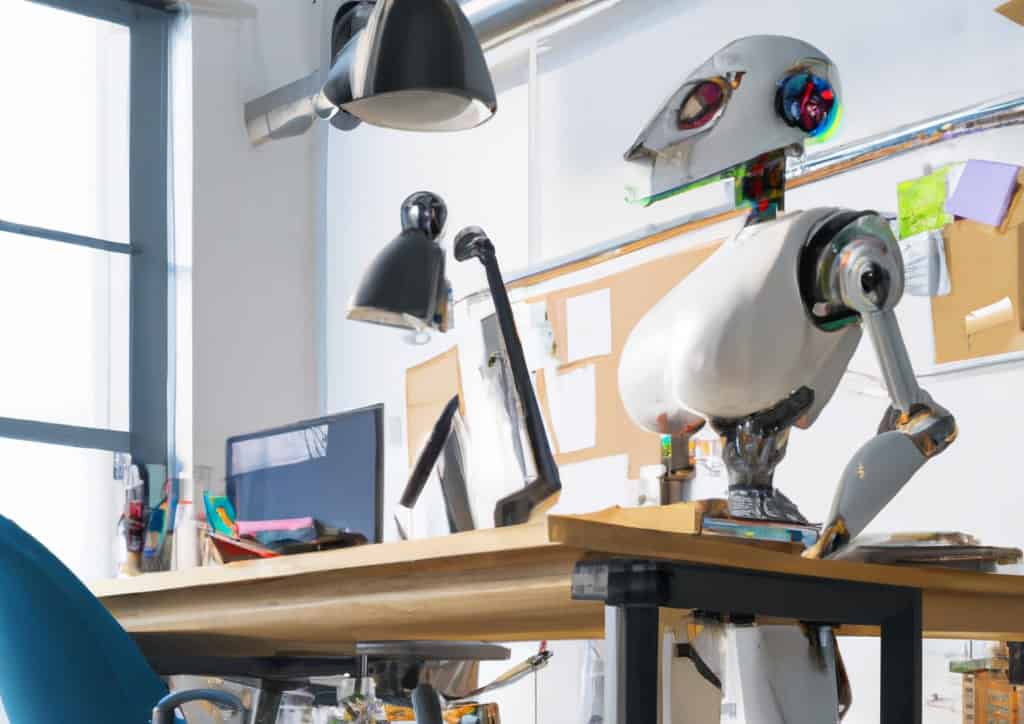As I walked into my office, I couldn’t help but notice a particular AI chatbot dominating the workspace. The tomorrow of work had arrived, and it was clear that this new era would require us to adapt. Artificial Intelligence (AI) has come a long way, especially in the last year (at least in a readily usable way). It has gained quite some ground in many places, including the workplace.
And the benefits are undeniable: increased efficiency, improved accuracy, and cost savings, to name a few. But with these benefits come challenges, such as potential job displacement, algorithm bias, and privacy concerns. As we look to tomorrow, it’s clear that the use of AI in the workplace will only continue to grow. So we need to start adapting now to realise its full potential.
In this article, we will explore the benefits and challenges of AI in the workplace and the steps we can take to prepare. So buckle up because the future of work is here, and it’s time to adapt.
What is AI?

AI, or Artificial Intelligence, is a technology that enables machines to perform tasks that would typically require human intelligence. Some examples are speech recognition, decision-making, and language translation.
AI automates and streamlines various tasks in the workplace, such as data entry, customer service, and accounting. Customer service chatbots can help customers with their queries. At the same time, AI algorithms can analyse large data sets to identify patterns and trends, enabling businesses to make better decisions.
AI is also used to assist us with tasks, like providing recommendations based on data analysis or even predicting equipment failures before they occur. The potential applications of AI are nearly limitless, and we are only scratching the surface of what’s possible. As technology advances, we will see even more ways to use it to improve productivity and efficiency in the workplace.
Benefits of AI in the workplace
The benefits of Artificial Intelligence in the workplace are particularly relevant to tasks such as data entry and creation, where the technology can significantly improve efficiency. AI-powered systems can quickly and accurately process large amounts of data, reducing our workload and enabling us to focus on more critical tasks.
Benefits for Salesforce B2C Commerce Cloud
A good example is the recent plugin I wrote for Salesforce Commerce cloud with the following features:
- Generate HTML in Content (Page Designer / Assets): This feature allows people with minimal HTML / React.js knowledge to generate HTML by describing what they want!
- Generate Texts (Page Designer / Assets): Need inspiration for an article or FAQ? Let AI help you out!
- Summarise product information for SEO: Are you still manually summarising texts for a page title and description for thousands of products? Why not let AI do the hard work?
The ideas I have to make repetitive tasks in the business manager easier do not seem to stop!
Nevertheless, it’s essential to remain mindful of the potential challenges of AI, such as ethical concerns, bias in algorithms, and privacy.
Challenges of AI in the Workplace
While we can probably keep thinking of many new ways this technology can make our lives easier, some challenges come with it.
Privacy
Using publicly available tools such as ChatGPT is fun to experiment with. But they also open up the floodgates of many privacy concerns. You must add the task “read the terms and conditions and privacy policy for storing and processing all the data entered” to your list!
Some possible scenarios:
- Message sentiment
- Scoring data quality of a customer
- Data completion on personal information
When considering privacy and regulations, you could end up in real trouble! So please think twice before feeding it customer data, and read the fine print!
Built-in AI tools
Luckily this concern fades into the distance when it is built into the platform, such as EinsteinGPT. But it never hurts to read up! And if you have concerns, you can contact support to clarify things.
Incorrect information
While technologies such as EinsteinGPT, ChatGPT or Google Bard can provide answers, it has become clear that they can spout out complete nonsense with confidence.
When generating the content, ensure you or someone else can verify it to be correct!
Feeding it contextual data to improve accuracy
As these tools receive more information, their responses become increasingly precise. This additional information also gives them the necessary context to enhance accuracy.
An excellent illustration of this concept is EinsteinGPT, which was recently introduced. This tool is equipped with the context of the record it is processing and all the visible, invisible, and linked information. By using all of this information, the tool can produce much more accurate and relevant results for the task it’s trying to accomplish.
This is precisely why ChatGPT can sometimes provide us with inaccurate information - because it doesn't truly understand the subject matter. Instead, it generates responses by analysing and selecting words most likely to fit together cohesively.
Short term memory
Another challenge with certain tools, such as ChatGPT, that ‘remember’ the context given to them in previous messages is their short-term memory. Even though we, as humans, can remember the entire conversation and hope that the tool we “talk” to does the same – it does not.
If we let conversations drag on, it loses the context given to them initially, which can end in frustration. That is why keeping the conversations short and rebooting occasionally is a good idea!
Unemployment?
One of the concerns that people have shouted from the rooftops is that specific roles will disappear with this new technology. But is this true? With any new technology, people have repeated this line over and over again.
I can’t entirely agree with this statement, but I feel that the contents of these roles will change. And people will need to adapt to these changes. And with many things, if you do not acclimate, you will become obsolete at one point!
But isn’t that the case with any change? Take the auto industry as an example. There is a lot afoot with electric vehicles and the technological changes inside them. People in all parts of this industry had to re-skill and adapt to these changes, and it won’t stop any time soon.
The future of AI in the workplace
As the pace of technological advancement continues to accelerate, it’s clear that Artificial Intelligence will play an increasingly important role in the workplace. In the future, we can expect to see even more ways AI will transform our work.
I expect AI to significantly impact “tedious” manual tasks, particularly when large amounts of data must be sifted through to take action. For instance, consider the example of search keywords. In this scenario, Salesforce B2C Commerce Cloud provides reports on the search terms that yield results and those that do not. Matching a list of thousands of words to another can be hours (if not days) of work.
Why not let AI handle this task for you? You can then review the outcomes for accuracy. Imagine the amount of work that could be saved by doing so!
AI is also likely to play an essential role in decision-making processes. By analysing data from multiple sources, AI algorithms can provide valuable insights to inform business decisions. For example, in the healthcare industry, AI-powered systems can analyse patient data to identify potential health risks and suggest personalised treatment plans.
It can transform the way we collaborate and communicate in the workplace. The virtual assistants we know now (Alexa, Google, Siri) will improve at scheduling meetings and managing workflow. At the same time, AI-powered translation systems will enable more effective communication across language barriers.
Conclusion
As I reflect on the future of AI in the workplace, I’m reminded of a conversation I had with a colleague not too long ago. We discussed the potential of AI to transform the way we work. While we were excited about the possibilities, we also acknowledged the challenges ahead. The truth is AI has the potential to revolutionise the workplace in countless ways.
Still, it’s up to us to ensure we use it responsibly and ethically. By embracing AI and addressing its challenges, we can create a more efficient, productive, and equitable workplace for all.




